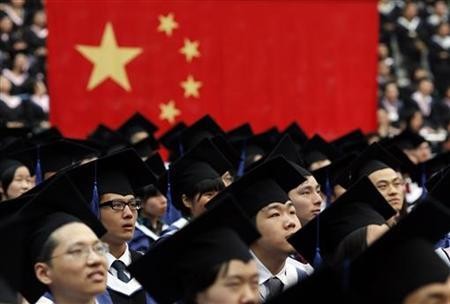Graduating from a university abroad does not necessarily guarantee a satisfactory job in China, according to a study-abroad agency consultant.
Chinese students pursue education in other countries either to cover up deficiencies in their studies or to receive a better quality of education, consultant Liu explained. Having high marks on foreign language exams such as the TOEFL is also a great advantage, said Liu.
Although obtaining an overseas diploma is an asset, Chinese graduates with low academic performance may not be able to take advantage of their overseas diplomas when looking for a job in China.
A human resources department supervisor in a private company in Tianjin explained that local and overseas graduates are treated equally "as long as their abilities are satisfactory."
Further, Chinese consulting company employee Xiao Yu said that what Chinese employers care more about is "whether you are competent in your job, rather than your overseas experience."
Xiao graduated from a New Zealand university and is currently earning less than 5,000 yuan a month.
Another Chinese employee who graduated abroad, Shen Fu, said she did not achieve her position at a five-star hotel at age 26 easily.
"We need to adjust our expectations and start from the bottom level. The overseas experience which shaped our independence and openness, can eventually be valued as long as we are responsible and scrupulous in our jobs," she said.
From 1978 to 2012, approximately 2.64 million Chinese students chose to study abroad, and 90 percent of them paid for their own education costs. From 2009 to 2014, there were about 800,000 Chinese students who returned from overseas, which is three times higher than the number of returning students three decades ago.
Currently, approximately 9 percent of Chinese adults attained some college education, which is more than twice higher than in 2000.
Beijing is looking forward to increasing its college-educated adult population to 15 percent by 2020, with $250 billion as investment in higher education every year, Forbes reported.



























